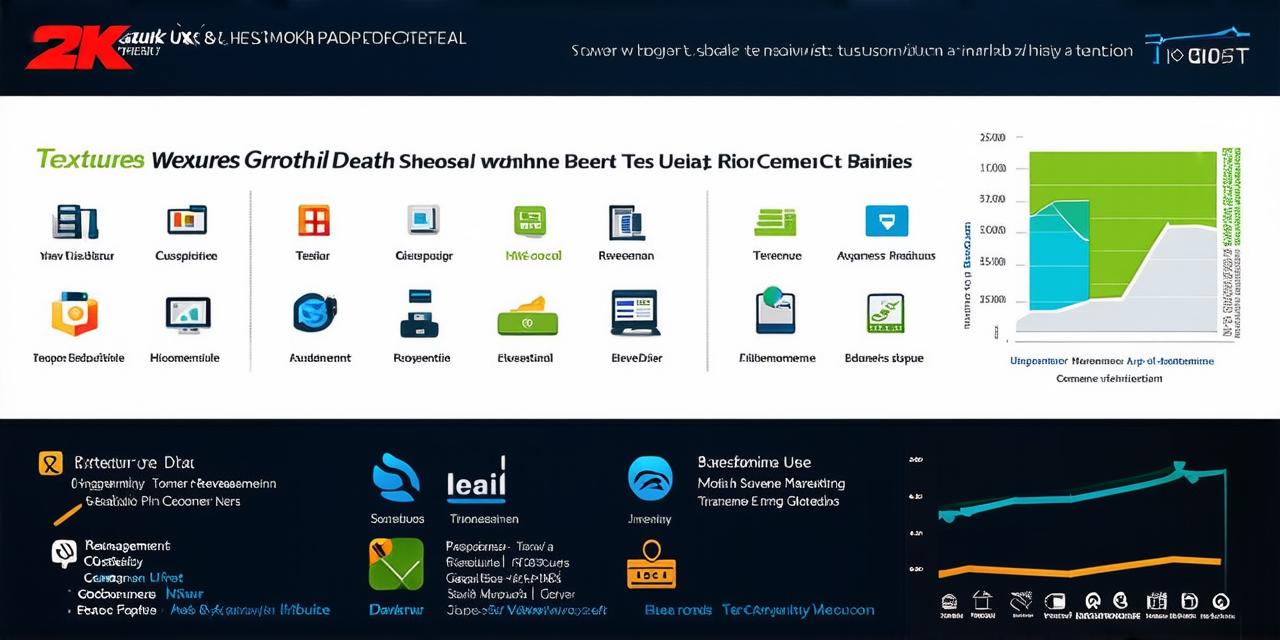Benefits of Developing a Mobile App for Your Business
Increased Visibility
One of the most significant benefits of having a mobile app is increased visibility. With a mobile app, your business will have its own dedicated platform on customers’ smartphones, giving you the opportunity to reach them directly at any time of the day or night. This increased visibility can lead to more brand recognition and exposure, which can ultimately result in more sales and revenue for your business.
Improved Customer Engagement
Mobile apps allow businesses to engage with their customers in new and innovative ways. From push notifications to personalized offers, mobile apps offer a range of tools to help you keep your customers engaged with your brand. By providing regular updates and relevant content, businesses can build stronger relationships with their customers, leading to increased loyalty and repeat business.
Increased Accessibility
Mobile apps make it easier for customers to access your products or services at any time of the day or night. Whether they are searching for information about your business, making a purchase, or simply looking for entertainment, mobile apps offer an unparalleled level of convenience and accessibility. By providing customers with easy access to your products or services, businesses can improve their overall customer experience and increase customer satisfaction.
Improved Data Collection and Analysis
Mobile apps provide businesses with valuable data that can help them improve their operations and better understand their customers. From purchase history to location data, mobile apps offer a wealth of information that businesses can use to make informed decisions about their products or services. By collecting and analyzing this data, businesses can gain insights into customer behavior and preferences, allowing them to tailor their offerings to better meet the needs of their customers.
Cost Savings
Developing a mobile app for your business can actually save you money in the long run. While the initial cost of developing an app may be high, the long-term savings can be significant. By streamlining operations and improving customer engagement, businesses can reduce their overall costs and improve their bottom line. Additionally, by using mobile apps to reach customers directly, businesses can avoid expensive marketing campaigns and other advertising expenses.
Case Studies
Many successful businesses have already recognized the benefits of developing a mobile app for their business. Here are just a few examples:
- Starbucks has seen a significant increase in sales since launching its mobile app. With features such as mobile payments, loyalty programs, and personalized offers, the Starbucks app has helped the company stay ahead of the competition and connect with customers on a deeper level.
- Sephora, the popular cosmetics retailer, has also seen significant benefits from developing a mobile app. The Sephora app allows customers to browse products, find nearby stores, and even schedule appointments with makeup artists. By providing customers with easy access to its products and services, Sephora has been able to improve customer satisfaction and increase sales.
- Uber, the ride-hailing giant, has revolutionized the transportation industry with its mobile app. The Uber app allows users to easily request rides, track their drivers in real-time, and even split fares with friends. By providing customers with a seamless and convenient experience, Uber has been able to capture a significant share of the ride-hailing market.
FAQs
1. What are some common features found in mobile apps for businesses?
- Mobile payments
- Loyalty programs
- Personalized offers
- In-app messaging
- Location data collection
2. How can businesses use data collected from their mobile app to improve their operations?
- Analyze customer behavior and preferences
- Identify areas for improvement in products or services
- Optimize pricing strategies based on demand
3. What are some examples of successful mobile apps developed by businesses?
- Starbucks
- Sephora
- Uber
4. How can businesses use mobile apps to save money?
- Streamline operations
- Improve customer engagement
- Avoid expensive marketing campaigns
5. What are some common challenges faced by businesses when developing a mobile app?
- Cost
- Time-consuming development process
- Compatibility issues with different devices and operating systems
6. How can businesses measure the success of their mobile app?
- Track downloads and installations
- Monitor user engagement and behavior
- Analyze purchase history and customer feedback
7. What are some best practices for developing a successful mobile app for businesses?
- Conduct market research to identify customer needs and preferences
- Design an intuitive and easy-to-use interface
- Offer valuable content and features that keep customers engaged
